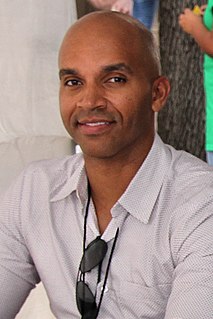A Quote by Nick Hanauer
We became enthralled with the view that wealth trickled down from the top and that if you poured money into rich people, sort of like an ingredient, prosperity and jobs would squirt out of them like donuts. And if you understand economies in the 19th-century way, that view is plausible, and I think a lot of people accepted it.
Related Quotes
The Anglo-American tradition is much more linear than the European tradition. If you think about writers like Borges, Calvino, Perec or Marquez, they're not bound in the same sort of way. They don't come out of the classic 19th-century novel, which is where all the problems start. 19th-century novels are fabulous and we should all read them, but we shouldn't write them.
The money was all appropriated for the top in the hopes that it would trickle down to the needy. Mr. Hoover didn’t know that money trickled up. Give it to the people at the bottom and the people at the top will have it before night, anyhow. But it will at least have passed through the poor fellow’s hands.
I find it strange that - at least in my take on it - the people who are the most alarmed about the dire times we live in are the ones who seem to be humorless, in their taste for poetry anyway. Humor is just an ingredient. It's always been in poetry. It kind of dropped out of poetry I think during the 19th and up to the mid-twentieth century. But it's found its way back. And it's simply an ingredient.
There's always a mismatch. I mean, you know, as the economy evolves, it reallocates resources. Now, the real problem, in my view, is - this has been - the prosperity has been unbelievable for the extremely rich people. If you go to 1982, when Forbes put on their first 400 list, those people had $93 billion. They now they have $2.4 trillion, 25 for one. That is - this has been a prosperity that's been disproportionately rewarding to the people on top.
If I focused hard on getting a literary agent, and doing things like that, instead of designing my blog's header, I would have more money, I think. I think I don't view myself as an author. I view myself as a person. I view [anything] as part of being a person, so I feel okay with "marketing" or other things like that.
The wealthy class often looks down on the poor as "those people." And deprived people view the rich as cold and heartless. The way to break down the barrier between the rich and poor is to asociate with each other and to help one another. Make a connection. If you can break down the barrier, it may pave the way to recovery for some person, a family, maybe an entire community.
Much of the message that I try to put across to students is that they have to figure out what they really like to do and find a way to do that as an adult for their jobs. A lot of people have jobs they don't like, and it makes for very unhappy people. So I tell them if you like to write, or run around, or dig in the dirt, then find a job that will allow you to do that, and you'll be happy.
The majority of people who come to America come for a better life, just like the Italians, the Jews, the Irish, and the Polish did in generations before. A lot of the Irish came here back in the turn of the 19th to the 20th century because there were no opportunities and no options at home for them. There were no jobs and there was extreme poverty. They came here to be able to send money back home.
I do think that some of my songs, like Take a Minute, are like the train between the two worlds. It starts out with the question of "how did Gandhi ever withstand the hunger strikes and all / he didn't do it to gain power or money as I recall," and its sweep reaches all the way to this part of the world. I think maybe I'm a translator, because I lived in both worlds and truly understand them. I understand the discontent that comes from not having. But I also understand the anxiety that comes from wealth and convenience.


































